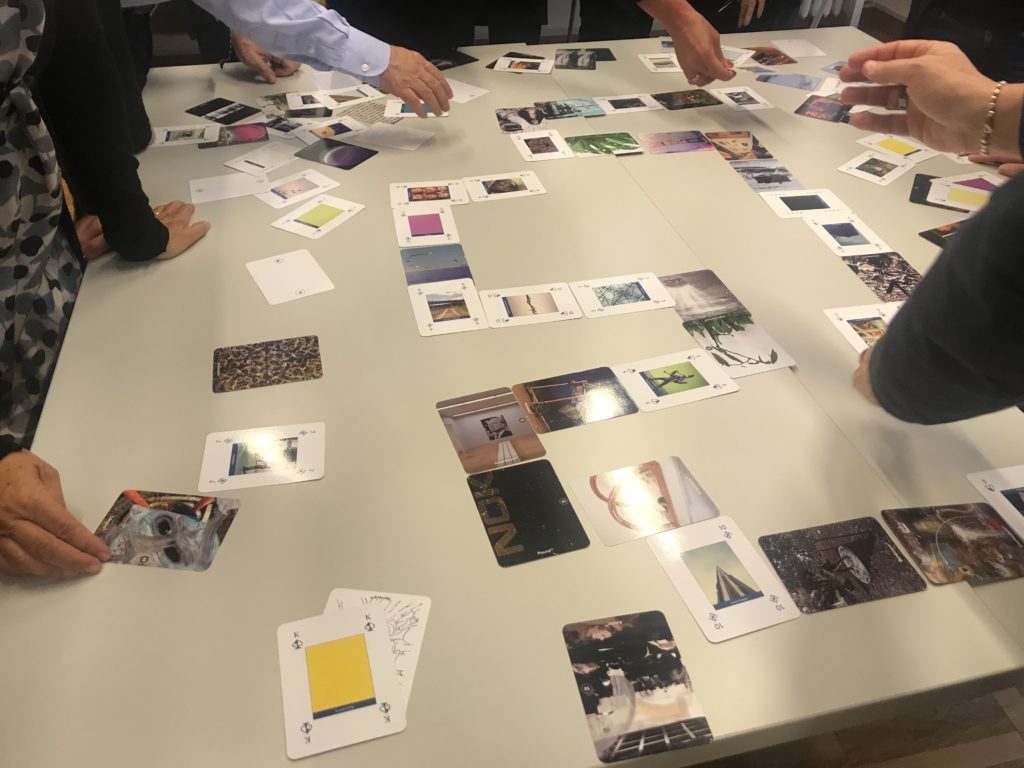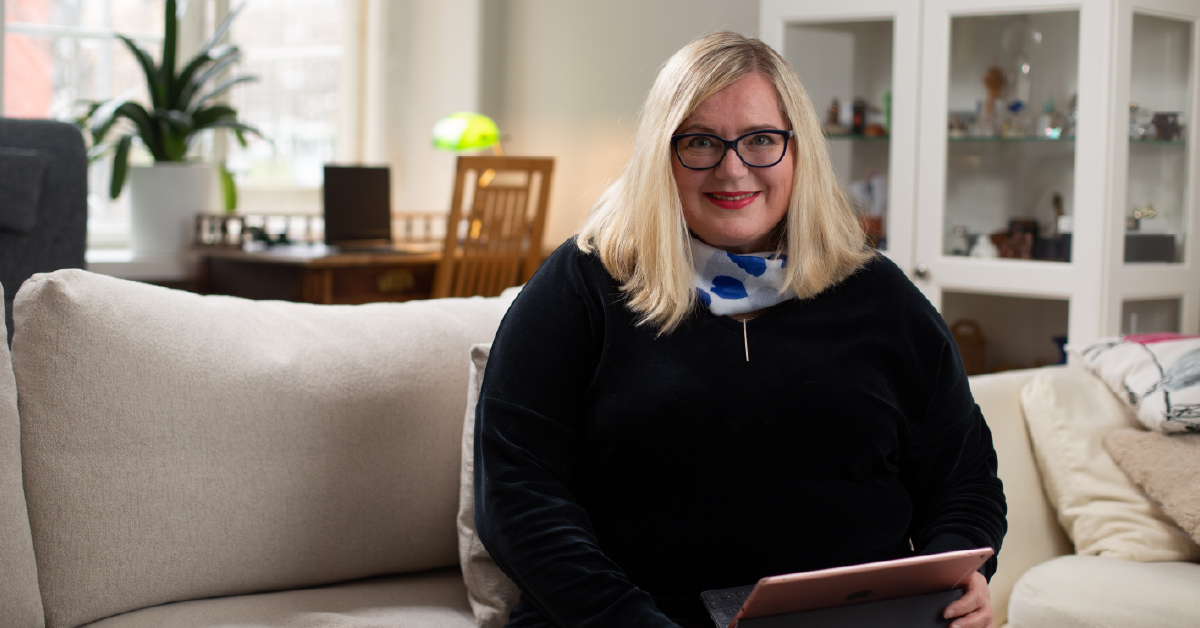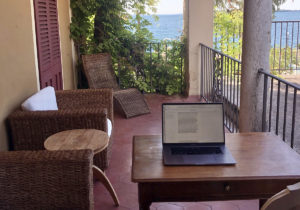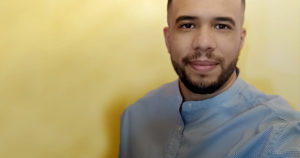Scroll down for the English version
Paula Kuusipalo-Määttä e il metodo flowknow®
Quello delle emozioni è un tema di grande attualità, sempre più diffuso anche nelle organizzazioni. Ci sono molte differenze, sul modo di viverle, esprimerle e di conseguenza su come gestirle, nelle diverse culture e nazioni. Ogni organizzazione poi ha una sua di “cultura emotiva”. Ne è testimone Paula Kuusipalo-Määttä, Coach finlandese e fondatrice della compagnia Paulos Consulting, che utilizza il toolkit flowknow® con i suoi clienti finlandesi.
Paula Kuusipalo-Määttä è una Business Coach e una Service Designer di Helsinki, dove vive e gestisce una sua società di consulenza HR. Si occupa di progettare i processi operativi, le dinamiche relazionali, le strategie e i servizi che le aziende offrono, nell’ottica di migliorarli e renderli più efficaci. Fornisce così servizi di training, leadership, self management per supportare i clienti nello sviluppo di competenze e strategie per ottimizzare l’efficacia professionale. Prima di diventare l’imprenditrice Paula Kuusipalo-Määttä ha lavorato per anni come Innovation Manager, presso la VR Group, le Ferrovie dello Stato in Finlandia, e successivamente nell’HR department, come Business HR manager, nell’ambito dell’organization culture, leadership e corporate policies.
FG: Ancora oggi, anche in Finlandia, molte organizzazioni si trovano in remote working. Qual è la situazione lavorativa attuale e quali le principali sfide?
PK-M: Ci sono aziende che sono riuscite a riorganizzarsi in tempi abbastanza brevi, altre invece hanno riscontrato maggiori difficoltà e hanno molti problemi operativi, a causa del Covid. In generale ovviamente, per tutte le organizzazioni è stato un cambiamento radicale: hanno bisogno di un aiuto esterno, il Coaching è sicuramente molto utile in questo senso, ma hanno in primo luogo bisogno di trovare la motivazione interna, impegnare le proprie energie e i propri sforzi per lo sviluppo di nuove competenze essenziali per la crescita.
Stiamo tutti vivendo una situazione insicura, c’è molta incertezza per le aziende: la maggior parte delle persone lavorano ancora da remoto. Questo significa che sono sedute davanti allo schermo del loro computer tutti i giorni, per tutto il giorno.
FG: Quale pensi possa essere il ruolo e la natura del Coaching, in questo momento che stiamo vivendo?
PK-M: Si potrebbe – erroneamente – pensare che le sessioni di Coaching, con le attuali modalità di lavoro in remote, non portino gli stessi benefici dei percorsi in presenza. In realtà, intraprendere percorsi di Coaching a distanza è possibile e anzi è più che mai urgente, per sviluppare le competenze necessarie per affrontare il contesto e il mercato di oggi. Bisogna però adottare gli strumenti e le tecniche adeguate, che permettano di essere efficaci nelle nuove condizioni. Effettivamente non ci sono molti strumenti che puoi usare anche a distanza: il toolkit flowknow® è utilizzabile anche in digitale, e anzi è uno dei più user-friendly. Riesce non solo a mantenere la sua efficacia, ma si rivela anche molto utile per aumentare il coinvolgimento in remoto, in cui risulta più difficile. Incentiva le persone a partecipare più attivamente, le carte e le immagini aiutano concretamente ad essere più motivati, concentrati e focalizzati sul problema. È un grande supporto nelle sessioni di Coaching, agevola molto le dinamiche tra Coach e Coachee, riesce a colmare la distanza fisica, perché connette le persone e le tiene ingaggiate. Io ad esempio lo utilizzo molto anche come ice breaker, proprio per connettere le persone, farle sentire a proprio agio e tenerle ingaggiate.
FG: Quindi come utilizzi il toolkit? Quali benefici, rispetto alla tua esperienza, pensi possa apportare ad un’organizzazione?
PK-M: È diverso da ogni altro metodo che abbia mai usato. Penso sia molto potente dal punto di vista dell’apprendimento e della crescita: incentiva a pensare “out of the box”, a considerare un altro punto di vista, nuovo e originale, e così anche a calarti nei panni delle altre persone e comprendere. Io lo uso sia nel one to one che nel Team Coaching, nei corsi di Self management e di Service Design. È molto potente da un lato nel portare innovazione, dall’altro nel costruire una visione comune. Il team non sempre è allineato sugli obiettivi: prendere tempo per riflettere, per ascoltare gli altri e per esprimere con più chiarezza ciò che si sente e prova, è fondamentale per migliorare le dinamiche collettive costruendo relazioni costruttive.
Mi viene in mente un episodio, che vorrei raccontare dal contesto di un progetto Universitario. Dovevamo decidere un nuovo modo di fornire educazione agli studenti e stavamo pensando a quali cambiamenti apportare per migliorarlo, per renderlo più efficace e per risolvere le difficoltà che studenti e docenti ci avevano segnalato. Non capivamo però di preciso quale fosse il problema, non era chiaro e non c’era consapevolezza. Ho così deciso di usare le carte del toolkit e la tecnica dello storyboard. Ho subito notato un cambiamento: le persone, tutte intorno allo stesso tavolo, erano più libere nel parlare, nell’esprimere ciò che pensavano e provavano.

Questo ha aiutato anche ad essere più innovativi, il fatto di condividere idee, sensazioni ed emozioni ha contribuito significativamente all’elaborazione di strategie non scontate. Grazie allo strumento siamo quindi non solo riusciti collettivamente a focalizzare la fonte del problema, ma anche a costruire una strada per la soluzione.
FG: Quali sono le reazioni dei Coachee, quando sperimentano il toolkit?
PK-M: Le persone sono molto soddisfatte, ne percepiscono i benefici e rimangono piacevolmente sorpresi. E’ uno strumento che riesce a stimolarli ed effettivamente a generare dinamiche ed emozioni inaspettate: questo li incuriosisce e suscita molto interesse nei clienti.
FG: Frequentare il corso di flowknow® ti ha permesso anche di entrare in contatto con nazionalità e culture diverse, perché gli altri partecipanti provenivano da paesi diversi. Quali differenze hai notato tra la cultura italiana e quella finlandese?
PK-M: Ho notato che gli italiani sono molto più disponibili e predisposti ad esprimere e condividere le proprie emozioni, mentre per i finlandesi è molto difficile, anche spaventoso farlo, soprattutto con persone che non conosci. L’emozione in Italia è ovunque, in ogni ambito – almeno, questa è la mia percezione, relativa alla mia esperienza.
FG: Dalla tua prospettiva, qual è il ruolo che le emozioni svolgono nell’esercizio della leadership?
PK-M: La leadership ha primariamente a che fare con la self-leadership e con quanto conosci te stesso. Per poter essere efficace, è indispensabile la gestione di sé, che implica sapere quali reazioni ed emozioni certe situazioni scatenano in se stessi: questo è collegato infatti a ciò che ostacola il rendimento, ciò che blocca l’espressione del pieno potenziale, e così anche all’efficacia che si ha nel rivestire il proprio ruolo professionale, nel portare a termine incarichi e nell’assumersi le responsabilità che questo prevede. Le emozioni infatti condizionano le prestazioni, possono ostacolarle oppure migliorarle. Influenzano ad esempio la self-confidence, che è fondamentale nel ruolo di leader, per rintracciare i propri punti di forza, sviluppare e potenziare le proprie abilità e competenze.
FG: Tu sei anche un’esperta di “Leadership al femminile”: che ruolo hanno le emozioni in questo?
PK-M: Se penso alla leadership al femminile, credo che il Coaching ti aiuti a trovare e capire la tua forza per essere un leader, la tua modalità unica. è importante comprendere che non è necessario cercare di “assomigliare” ad un leader uomo, seguire un modello per così dire “maschile” di capo, anzi è poco sano. L’unica cosa davvero funzionale ed efficace è essere se stesse e pensare in modo indipendente. Il Coaching incentiva proprio la riflessione su di sé, cercando di concentrarsi sul valore personale di ciò che si fa, e questo vale nella carriera ma anche nella vita privata.

CHI?
Paula Kuusipalo-Määttä
- Fondatrice della Compagnia Paulos Oy / Ltd in Helsinki – Finlandia
- Professione: Senior Business Coach and HR Consultant
- Studi: Knowledge Management and Leadership in LUT-University. Specializzazione: The Connection between Trust and Innovation
- Ama la sua famiglia e l’Italia
How to incite emotions at work, even in Finland – Paula Kuusipalo-Määttä and the flowknow® method
Paula Kuusipalo-Määttä is a Senior Business Coach and Service Designer who lives in Helsinki, where she manages her own Business Development and HR consulting company. She deals with the planning of operational processes, relational dynamics, strategies, and services offered by companies, in order to improve them and make them more efficient. Therefore, she provides training, leadership, and self-management services to support her clients in the development of expertise and strategies to optimize professional efficacy. Before becoming an entrepreneur, Paula Kuusipalo-Määttä worked for years as Innovation Manager at VR Group, the Finnish government-owned railway company, and, subsequently, in the HR department as HR Business Manager, in the field of organisation culture, leadership, and corporate policies.
FG: To this day, even in Finland, many organisations are still in a state of remote working. What is the current working situation, and which are the main challenges?
PK-M: There are companies that have been able to reorganize themselves rather quickly, while others have encountered more difficulties and have many operational issues, due to Covid. Obviously, it has been a radical change for all organisations in general: many of them need external help, and in this sense, Coaching is very useful for sure. However, first of all, they have to find their internal motivation and focus their energies and efforts on the development of new skills required to grow.
We are all living in an unsure situation, and currently, there is much uncertainty for companies: most people still work remotely. This means they sit in front of their computer screen all day, every day.
FG: What do you think may be the role and nature of Coaching at this time?
PK-M: One may – erroneously – think that Coaching sessions, during the current remote working modalities, may not be as beneficial as the in-person meetings. As a matter of fact, starting a remote Coaching itinerary is possible, and it is more urgent than ever, to develop the necessary skills to face the current context and market. However, it is necessary to opt for the appropriate tools and techniques, which will guarantee efficiency in these new conditions. Indeed, there are not many tools that can be used remotely as well: the flowknow® toolkit can be used digitally, and that is why it is one of the most user-friendly. In digital not only does it maintain its efficiency, but it also turns out to be very useful in increasing remote involvement, which is usually more difficult. It encourages people to participate more actively, the cards and images tangibly help to be more motivated and focused on the issue at hand. It is a great support during the Coaching sessions, as it facilitates the dynamics between Coach and Coachee, reducing the physical distance by connecting people and keeping them engaged. For example, I often use it as an icebreaker, precisely to connect people, putting them at ease and keeping them engaged.
FG: Therefore, how do you use the toolkit? Which benefits, according to your experience, could it bring in an organization?
PK-M: It is different from any other method I have ever used. I think it is very powerful with regards to learning and growing: it encourages to think “out of the box”, to consider different perspectives, new and original, and also to put yourself in other people’s positions and understand them. I use it both in one to one and Team Coaching, in the Self-Management and other courses and even in the Service Design process. It is very powerful, on the one hand, to bring innovation, and, on the other, to build a common vision. Teams do not always agree on the goals: taking time to reflect, to listen to others and to express more clearly what we are feeling, is essential to improve the collective dynamics building constructive relations.
A particular episode comes to my mind, from the context of a Service Design project, that I would like to share with you. In this project, our objective was to find new ways on how to design the concept of the School as a Service model in cooperation with a local municipality, some civil servants, and political decision-makers. In the beginning, we had difficulties understanding which was the most important aspects to focus on in the project. Therefore, I decided to use the cards (both skill and emotion cards) through the storyboard technique, which is a way to collectively brainstorm through a narrative created with the use of the cards. I immediately noticed a difference: the people, all sitting at the same table, were talking and expressing more openly what they were thinking and feeling.
This also helped in being more innovative, sharing ideas, impressions, and feelings, significantly helped to come up with original strategies. Thanks to this tool, then, not only were we able to collectively identify the source of the issue but also to build a path towards a common solution.
FG: What are the Coachees’ reactions when they try the toolkit?
PK-M: People are very pleased; they perceive its benefits and are left pleasantly surprised. It is a tool that manages to inspire them and actually elicit unexpected dynamics and emotions: this intrigues them, and it creates a lot of interest in clients.
FG: Attending the flowknow® course also allowed you to encounter different nationalities and cultures since other participants came from other countries. What differences did you notice between Italian and Finnish culture?
PK-M: I noticed that Italian people are more available and inclined to express and share their emotions, while Finnish people find it more difficult, even scary, especially with people they don’t know. Emotions in Italy are everywhere, in every environment – this is my perception, at least, with regards to my personal experience.
FG: From your perspective, what role do emotions play when exercising leadership?
PK-M: Leadership is primarily based on self-leadership and how well you know yourself. To be able to be efficient, self-management is fundamental, and this entails knowing what reactions and emotions certain situations trigger within each of us. Indeed, this is connected to aspects that hinder performance and impedes the expression of one’s full potential, and to the efficacy with which one fulfills his or her professional role, for example, completes tasks and accepts the responsibilities this dictates. In fact, emotions influence performances, they can hinder them or improve them. They affect, for example, one’s self-confidence, which is essential as a leader, to identify one’s strengths, develop and increase one’s own skills and expertise.
FG: You are an expert in “Female Leadership” as well: what role do emotions play in this?
PK-M: When it comes to female leadership, I believe Coaching helps identify and understand one’s strengths to be a leader, in your unique way. It is important to understand that it is not necessary to try and “resemble” a male leader, follow a, so to say, “male” leadership model. The only real functional and efficient thing is to be oneself and think independently. Coaching precisely promotes self-reflection, trying to focus on the personal value in what someone does, and this applies both to career as to personal life.
Who?
Paula Kuusipalo-Määttä
- Founder of Paulos Oy / Ltd in Helsinki – Finland
- Profession: Senior Business Coach and HR Consultant
- Studies: Knowledge Management and Leadership in LUT-University. The topic of her master thesis is The Connection between Trust and Innovation
- Loves family and Italy






